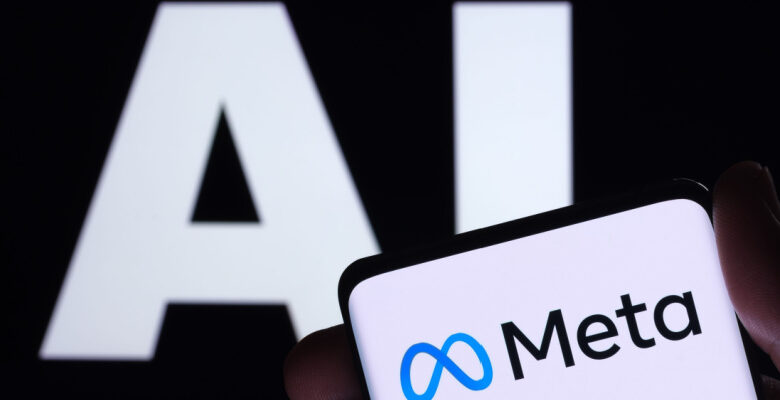Meta Launches New AI Chip

- Meta Platforms has unveiled its latest version of custom artificial intelligence (AI) chips to keep up in the race for AI dominance.
- The new chip is reported to provide performance seven times better than the first-generation MTIA chips.
Meta has revealed details about the company’s latest in-house artificial intelligence (AI) accelerator chips. The chip referred to as ‘Artemis’ has reportedly been developed to meet the growing requirements of AI in products such as WhatsApp, Facebook, and Instagram. It is expected to reduce energy needs and replace NVIDIA’s AI chips.
The new chip is the second-generation version of the Meta Training and Inference Accelerator (MTIA) line. It is a part of the company’s efforts to develop its hardware products. The latest version of the MTIA will be manufactured by the Taiwan Semiconductor Manufacturing Co. in accordance with its 5nm process. According to Meta, the new chip will provide a seven-fold performance over its predecessor.
See More: Google Unveils Custom Arm-Based CPU and Data Center AI Chips
The new chip is already being used in Meta’s data centers for AI applications and is expected to be improved to meet the scope of generative AI workloads. However, while the chip is a major step in Meta’s quest for AI dominance, it continues to rely heavily on NVIDIA’s products and is expected to continue doing so in the near future. The company has already revealed plans to acquire over 300,000 of NVIDIA’s H100 chips.
Google has just released its fifth-generation AI chip, while Amazon and Microsoft have a substantial headstart in the competition. The new chip is likely a significant development for the company’s AI teams, which are increasingly under pressure to cut costs. Meta is spending billions of dollars on training and operating generative AI models. Whether Meta can catch up to its competitors remains to be seen.
What do you think of Meta’s efforts in chip development? Let us know your thoughts on LinkedIn, X, or Facebook. We’d love to hear from you!
Image source: Shutterstock



